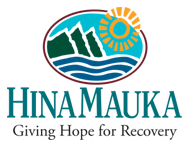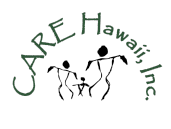About Warrior Ohana Medical Home in Hawaii
Warrior Ohana Medical Home, located in Kapolei, Hawaii, is a drug addiction and mental health treatment facility that offers comprehensive care for individuals suffering from drug addiction, dual diagnosis, and mental health issues. The facility is accredited by the State License and JCAHO, ensuring high-quality and evidence-based treatment services. Warrior Ohana Medical Home provides a range of levels of care including dual-diagnosis, outpatient, inpatient, and aftercare support. Their dedicated team of professionals is committed to helping individuals overcome addiction and achieve lasting recovery.
Warrior Ohana Medical Home offers a variety of services to address addiction and substance abuse issues. They provide dual-diagnosis treatment, which means they address underlying mental health conditions alongside substance abuse. This integrated approach helps individuals receive comprehensive care for their specific needs. The facility also offers outpatient and inpatient programs, allowing individuals to choose the level of care that suits their recovery journey. Additionally, Warrior Ohana Medical Home provides aftercare support to ensure ongoing support and help individuals maintain their sobriety after completing treatment.
Genders
Ages
Modality
Additional
Accreditations
State License

JCAHO
Conditions and Issues Treated
When someone in struggles with both addiction and mental or emotional illness, this is considered a dual diagnosis. Dual diagnosis treatment can include therapy for these issues to happen simultaneously, which will allow either of them to be treated effectively.
Sometimes people who have suffered from addiction disorder also suffer from co-occurring disorders such as depression, anxiety, bipolar disorder, etc., making them “dual diagnoses.” Dual diagnoses require specialized treatment programs where drug and alcohol addiction are addressed along with psychiatric illnesses. Some rehabilitation facilities provide patients suffering from cooccurrences a program with highly integrated services and a clean environment with few distractions to help them succeed.
Levels of Care Offered
This center offers a variety of custom treatment tailored to individual recovery. Currently available are Aftercare Support, Dual-Diagnosis, Inpatient, Outpatient, with additional therapies available as listed below.
Inpatient treatment for alcoholism or drug addiction is an option that provides the addict with a supportive environment in which they can stop using. After detox, an inpatient treatment center provides a structured environment for the addict to recover from their addiction and begin taking steps toward a lifetime of sobriety.
This type of treatment is appropriate for addicts that are most in need of intensive care and supervision. This includes those who were unable to quit on their own, those who need more structure than they can get in outpatient treatment, and those whose addiction has led them into legal trouble or severe health problems.
Outpatient treatment is often used for drug addicts in drug rehab. Outpatient treatment consists of counseling and therapy sessions. This form of treatment is also called ‘day-treatment’. The outpatient treatment process begins with the addict’s initial detox period, lasting about ten days.
Outpatient treatment is used for those who are at moderate risk for ‘slipping back’ into the addiction, for those who:
- Are not currently experiencing any side effects from withdrawal and can handle social pressure
- Can handle stressors that might trigger relapse
- Have a stable living environment or have moved out of their previous environment, which was not conducive to being sober
- Have a support system that allows them to go to a facility a few times a week while still keeping their current responsibilities
- Have no legal obligations, being either on parole or probation, that require them to seek treatment at a mandatory facility
- Are not currently experiencing any side effects from withdrawal and can handle social pressure
- Have a stable living environment or have moved out of their previous environment, which was not conducive to being sober
Completing a drug or alcohol rehab program is only the first step. Then comes aftercare support. These services include sober living accommodations, career counseling, and AA/NA programs for those struggling with sobriety or who want help maintaining it after initial rehab at an addiction facility.
They can last up to a year or more depending on what’s needed most urgently after the earlier stages are completed.
Therapies & Programs
Because no single treatment is effective for all addicts, the goal of treatment and therapy should be to figure out what works best for each individual. Tolerance and withdrawal levels differ from person to person, affecting the treatment intensity required. Addiction treatment should aim to help addicts develop healthy coping mechanisms for dealing with their addiction and its underlying causes.
Couples therapy works with clients and significant others in a professional capacity to improve relationship dynamics. This can be helpful for addicts who are trying to marry the idea of recovery into their work, family, social lives – any aspect that has to do with relationships. Through counseling sessions, addicts will have an opportunity to talk about their addiction with professional partners.
Family therapy is beneficial for people who are in addiction treatment services because it offers addicts the opportunity to work with their family members to better understand what led them to make choices that contributed to their addiction.
This type of therapy helps family members reach a deeper understanding of how they can best support their loved one during recovery. It also helps the addict better understand their own motivations and triggers that led them to turn to substance abuse.
Family therapy can help addicts in the following ways:
- Assists family members in processing difficult feelings so they don’t blame or resent recovering addicts
- Assists family members in understanding how addiction has impacted the addict and everyone who is involved with them
- Allows the addict to take responsibility for their actions, while encouraging improved communication skills
- Helps family members understand how to best support an individual in recovery so addicts don’t relapse again.
Group therapy can help build a stronger support system and give addicts in Kapolei, HI insight into their addiction that they gain through shared conversations. Group therapy occurs in a controlled group environment, exclusive of one on one meetings. This makes it safer for patients to feel comfortable sharing the struggles they’re going through and gaining perspective.
Life Skills Services assist addicts in their recovery by teaching them healthy coping mechanisms that will aid them in becoming sober, focussing on helping people enter into, and maintaining long-term sobriety. Drug Treatment Centers provide Life Skills Services at varying levels of intensity, specific to the needs and requirements of each patient.
The benefits of Life Skills Services offered at Warrior Ohana Medical Home:
- Restores hope and empowerment — Helps addicts believe that recovery is possible and instills a new confidence in their ability to achieve a positive, drug-free future
- Enhances family involvement — Encourages families to get involved in the recovery process and supports their understanding and encouragement of healthy behavior.
- Increases patient’s compliance — Helps patients take responsibility for and ownership of their recovery and encourages continued progress
- Reduces relapse rates — Encourages long-term abstinence and emphasizes the importance of establishing sober support systems.
Payment Options Accepted
For specific insurance or payment methods please contact us.
Warrior Ohana Medical Home Associated Centers
Discover treatment facilities under the same provider.
No items foundLearn More About Warrior Ohana Medical Home Centers
Additional Details
Specifics, location, and helpful extra information.
Kapolei, Hawaii 96707 Phone Number(808) 433-5420 Meta DetailsUpdated November 25, 2023
Staff Verified
Warrior Ohana Medical Home Patient Reviews
There are no reviews yet. Be the first one to write one.
Kapolei, Hawaii Addiction Information
Hawaii has one of the highest rates of drug abuse in the nation. Methamphetamines and marijuana are the most common drugs involved in drug-related crimes in Hawaii. The state loses $500 million every year due to methamphetamine abuse, according to the Hawaii Meth Project. More than 1 million prescriptions for prescription drugs are given out every year.
The most commonly abused drugs in Kapolei are methamphetamine, cocaine, and heroin. In 2016, there were 943 admissions to drug and alcohol rehabs. 1,840 cases of alcohol or drug-related deaths between 2003 and 2013. That's roughly one death for every 5,000 residents. In Kapolei, Hawaii, there were 582 emergency room visits in 2016 due to drug abuse.
Treatment in Nearby Cities
- Pahala, HI (223.1 mi.)
- Waianae, HI (10.9 mi.)
- Kahului, HI (107.4 mi.)
- Honokaa, HI (188.8 mi.)
- Hakalau, HI (214.3 mi.)
Centers near Warrior Ohana Medical Home
The facility name, logo and brand are the property and registered trademarks of Warrior Ohana Medical Home, and are being used for identification and informational purposes only. Use of these names, logos and brands shall not imply endorsement. RehabNow.org is not affiliated with or sponsored by Warrior Ohana Medical Home.









